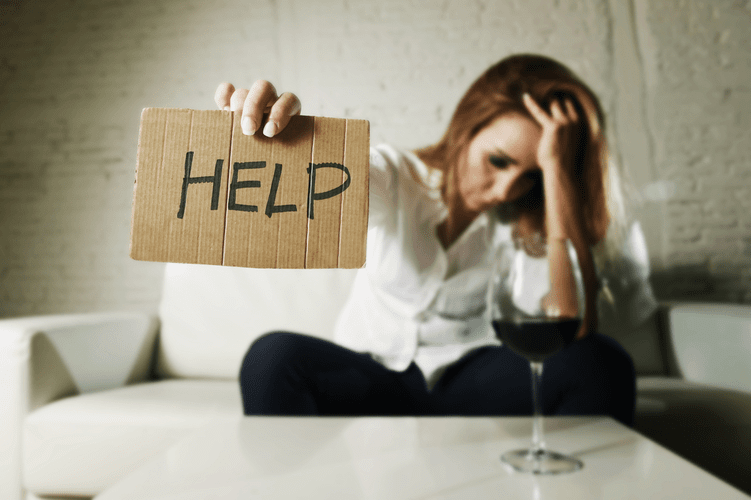If your loved one has an existing mental illness or other issues alongside the main alcohol misuse, check that the facility can support mental health services. Always remember that the goal of the conversation is to encourage your loved one to seek help. Rather than saying they’re “addicted to alcohol” or “an alcoholic,” talk about how people with substance use disorder experience certain symptoms.
Signs that Your Loved One Needs Rehab
- Educating yourself is the first step toward providing meaningful support.
- When you go to Al-Anon meetings, you don’t have to say anything if you don’t want to.
- Step 4 – Apply for Medicaid, but only if the family is certain the applicant will be approved.
- A summons is a court order requiring the individual, now called the respondent, to appear at a scheduled hearing.
- Effective measures often involve addressing multiple aspects of an individual’s life, including their family dynamics, mental health, and social environment, to reduce the risk of SUD development.
By following these steps, helping your loved one will be more organized, less stressful, and more effective. If needed, Beachway Therapy Center has licensed interventionists on staff who are ready to Halfway house help. According to Addiction Group, only about 10% of people who need addiction treatment receive it. This means millions of Americans are living with untreated substance use disorders.
Camelback Recovery
Due to individual differences, the process differs for everyone, and while a specific treatment plan may work for one person, it may not work for all. If your loved one has admitted that they are struggling and wish to actively seek outside support from a treatment center, this is the first big step. If a loved one has come to you for support, you should know that you cannot help this person by yourself. Addiction is a chronic disease that requires professional help for the best chances of a successful recovery.
With this in mind, don’t be surprised if they lie to you, their friends, other family members, and anyone else when it comes to their addiction. Instead, keep in mind that the addiction is in control and your loved one needs your help. This guide walks you through compassionate, effective ways to encourage rehab, based on real-life recovery stories and expert guidance from the team at Gev’s Recovery. Observing these signs can help you determine if your loved one needs rehab.
Active listening is crucial—make sure to acknowledge their feelings and responses, showing that their opinion and emotions are valued. We offer medically managed identification, a residential program, family therapy, and a restore and connect program. Our residential program utilizes evidence-based therapies combined with fitness, mindfulness, and nutrition to create individualized holistic treatment plans for each of our clients. It is not uncommon for individuals who have completed an inpatient treatment program to step down to an outpatient program. This can help individuals learn to balance independence alongside accountability and support. When you are thinking about trying to get someone into rehab, it is always best to talk with a medical professional about your different options.
Treatment Programs
However, it’s important how to get a loved one into rehab to remember that addiction is a complex issue, and not everyone will exhibit all of these signs. Life feels like an everyday struggle right now, but it’s going to get better. Making the decision to get help for substance abuse is the first step in changing everything.
Healing Together: How to Get a Loved One into Treatment
The court process begins when the petition and supporting evidence are filed at the appropriate local court in the county where the individual resides. A judge will conduct an initial review of the petition to determine if there is probable cause to proceed. If the judge finds the petition credible and that there are reasonable grounds to believe the person will not appear voluntarily, they may issue a warrant or a summons. A summons is a court order https://fuhaditsolutions.com/2024/04/08/living-with-an-alcoholic-spouse-what-to-do-and-how/ requiring the individual, now called the respondent, to appear at a scheduled hearing. To discover how we can support you and your loved one, contact our treatment facility today.
Self-Assessment: Am I Addicted?
This can be supported by collecting statements from other witnesses, such as friends or family members who have firsthand knowledge of the person’s condition. Official records, like police reports from domestic disturbances or medical records from overdose incidents, serve as corroborating evidence. The formal court document can be obtained from the local county courthouse or its official website. Some jurisdictions may also require a certificate from a physician who has recently examined the individual. RehabCenter.net is intended for educational purposes only and is not designed to provide medical advice of any kind. Any information found on RehabCenter.net should never be used to diagnose a disease or health problem, and in no way replaces or substitutes professional care.
- In these cases, consider staging a professionally guided intervention.
- When determining how to get someone into rehab, it’s best to have all the logistical details worked out before planning the intervention.
- Professional help not only ensures a safe and effective recovery but also provides a supportive environment for your loved one to address the underlying issues contributing to their addiction.
If your loved one is suffering from addiction, you’re likely wondering how to get someone into rehab. Each program is designed to offer the right level of care for different stages of recovery. Select a time and place where your loved one feels comfortable and is more likely to be receptive. Ensuring the setting is private and free from distractions is crucial when considering how to get someone into rehab. Consulting with addiction specialists or counselors can provide guidance on how to get someone into rehab and prepare for potential challenges during the process.
What Is a “Dry Drunk”? Understanding the Concept and Its Impact
The key is to have allies you can turn to, people who are familiar with what you’re going through because they’ve been there themselves. Celebrate their successes, no matter how small, and be there during challenging times. Often, we may deny the extent of their struggles, but it’s our responsibility to be vigilant.
This involves compiling a thorough record of incidents, including dates, locations, and explicit descriptions of behaviors that demonstrate the individual is a danger to themselves or others. Navigating the decision to seek court-ordered rehab requires understanding the law. The exact symptoms your loved one demonstrates will be dependent on the substance they are abusing as well as the level of their addiction. While they may not display outward signs, they may be uncharacteristically hyperactive or have the ability to not sleep for long periods of time. In some cases, a heart-to-heart may be an effective approach when speaking to your loved one about their problem.
As dependence on drugs or alcohol worsens, individuals can tend to ignore their loved ones because of guilt or embarrassment, or due to being too inebriated. Furthermore, they are more likely to socialize with people who have similar substance abuse problems. Even though you’re confronting your loved one, it’s important that you speak to the individual in a kind and loving manner. However, you must still be direct about the consequences that will occur if your loved one doesn’t obtain treatment following the intervention. Once your loved one understands all of the options, he or she may be more receptive to treatment. Even if a professional hosts the intervention for you, your loved one could still refuse help.



